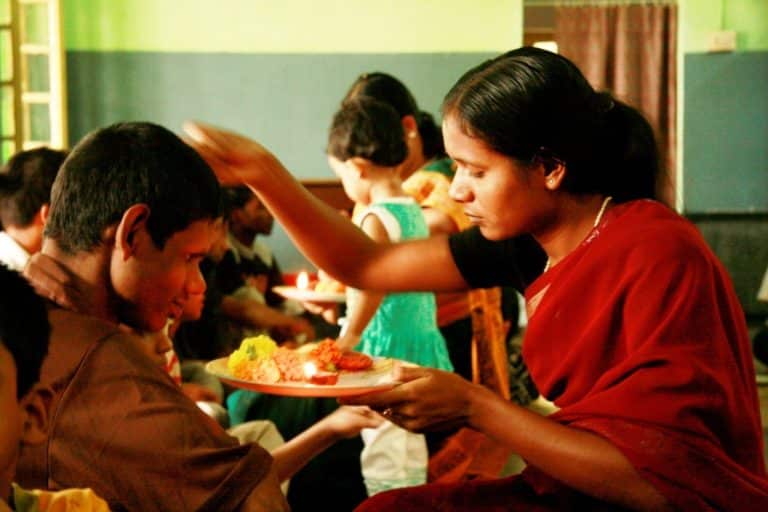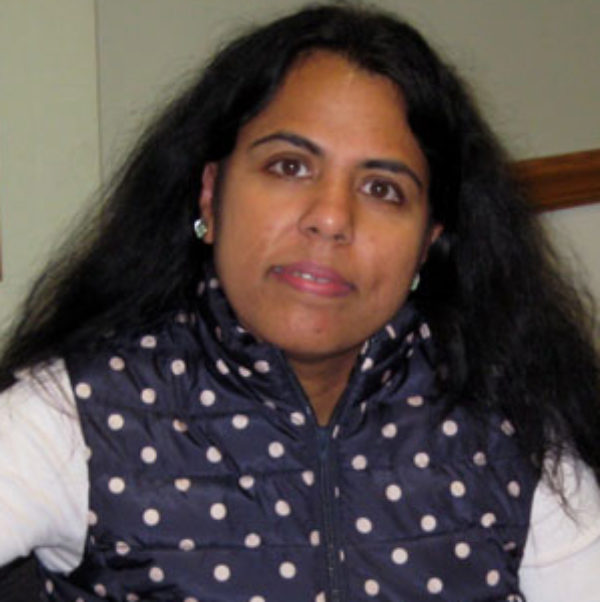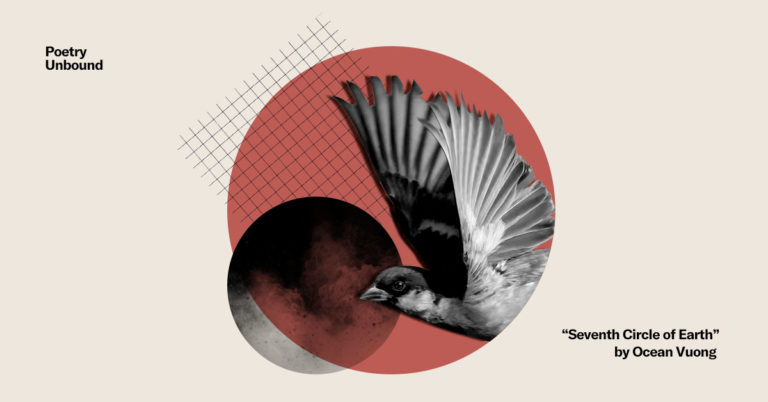
Image by Asha Niketan — Anansol.
A Lesson in Love at L’Arche in Kolkata
"Each human being, however small or weak, has something to bring to humanity. As we start to really get to know others, as we begin to listen to each other's stories, things begin to change. We begin the movement from exclusion to inclusion, from fear to trust, from closedness to openness, from judgment and prejudice to forgiveness and understanding. It is a movement of the heart." —Jean Vanier
It just so happened that two days after my very first visit to a L’Arche community near Boston, I was slated to travel to Kolkata, India. Having had a remarkable experience, I was excited to visit the Kolkata community, but also somewhat apprehensive — this was India, and even with all its goodness and good intentions, things there often take on a life of their own.
I must admit that L’Arche, Kolkata was another experience to behold and left me feeling shameful for ever doubting its sanctity. However, what saddened me was the enormity of need there. How fortunate were the few who had miraculously found a home at Asha Niketan, the Kolkata chapter of L’Arche, but how sad that there were thousands more who needed the same tender, loving care, yet would never receive it.
To this day, people with mental illness and cognitive challenges are often abandoned by their families and are left to fend for themselves. They are referred to as pagol (mad) and are avoided and shunned by all. They can often be seen digging through trash left on the streets along with stray dogs, feral cats, and sacred cows.

It’s important to recognize, however, that as cruel as this abandonment appears to be, sometimes these families have no other viable solution. They can barely make ends meet themselves, and having a child who needs medicine and constant care is not an option when all family members, even the youngest ones, are busy earning a single meal day after day. Believe me when I say that the level of poverty in a developing country is unimaginable and makes me question the very existence of a kind and just Supreme Being.
Asha Niketan (“House of Hope”), built on a plot of land donated by Mother Theresa and adjoining one of the homes run by the Missionaries of Charity, lived up to its name; it was a beacon of hope and optimism. The community was just as hospitable and warm-hearted, and just like in Haverhill, Massachusetts some 8,000 miles away, the members and assistants were genuinely happy at all times. In fact, Asha Niketan was an even livelier place, as a majority of its members are vibrant young kids — some of the sweetest, kindest, friendliest people one could ever meet. After a somewhat shy introduction, they were able to shed all their inhibitions and interact in a way that left me begging for more.
Although the spirit of Asha Niketan was the same as that of Gandhi House in Haverhill, what stands out is the tremendous need for support because of the poverty that many Westerners cannot comprehend, and many Easterners turn a blind eye to. I took solace in Jean Vanier’s thoughts on this:
“When people love each other, they are content with very little. When we have light and joy in our hearts, we don’t need material wealth. The most loving communities are often the poorest.”
In order to convey the essence of Asha Niketan, it is only fitting that I highlight the journey of a few of its members. The hardest part was choosing who to feature because each story is extraordinary. Here is the story of a few such individuals who received a second chance at life by the grace of L’Arche and in the process changed the lives of those who came in contact with them, including me.

Madhu, whose name literally translates to “honey,” is a soft-spoken man in his late fifties. The sisters of the Missionaries of Charity found him abandoned on the side of the street many years ago in the most agonizing state with massive burns on his back. They brought him to Nirmal Hriday (Pure Heart) — the home for the dying — but, miraculously, he survived.
Sankar Paul, an assistant with the community for 36 years, describes Madhu as a “deeply holy man with a heart of gold, who prays for everyone.” In 1986, Madhu was among the chosen few to receive Holy Communion from Pope John Paul II when he visited Kolkataa. Madhu loves to talk and is very proud of his command of the English language, which he speaks incessantly.
Today he will happily tell you about his travels to L’Arche Atlanta, which was a miracle in itself because the government of India would not grant a passport to an orphan with no birth record. Madhu is an exemplary worker; in the morning he helps in the kitchen and in the afternoon he works in the workshop making paper bags. In between he prays for the well-being of all; never is there a trace of bitterness for the horrific pain that he endured as a child, because love has conquered all.

It is hard to believe that Papu, a quiet young man with a precious smile and a calm personality, was once the target of ruthless name-calling on the streets. Unable to cope, he often became uncontrollably aggressive. His parents, failing to understand him or deal with him, would physically abuse him. When Papu couldn’t take it any more, he attempted suicide by consuming rat poison and became very ill. Soon Asha Niketan became a safe haven for him where his self-esteem soared and where his skills as a gifted artist began to emerge.
Today, Papu teaches others the fine art of candle making. In 2014 he won the “Best Craftsman” award from the National Institute for the Mentally Handicapped in Hyderabad. Papu’s humble demeanor is proof of his gratitude toward L’Arche for the opportunity he was given when all his life he had been told that he would never amount to anything. Sankar still recalls his face at the time he received his first salary. That same inexplicable joy is replicated each month when the working members receive their monthly salary — a meager sum of 500 rupees (less than ), most of which is often handed over to their families in need.

I was touched to see the deep friendship between two young men: Rajesh, a handsome boy with an unrestrained smile who has Down Syndrome, and Bapi, a young man with paraplegia and a host of medical needs. At one point I saw Rajesh promptly get up from his chair during a lesson to help strap his friend comfortably into his seat.
The transformation of their lives from wild to peaceful is truly amazing. When I asked why Papu, at age 24, continues to attend the children’s program since he started in 1997, Rakhi, a beautiful, kind assistant, tried to hold back tears and said:
“The medicines that he needs to keep his massive seizures under control are only for those who attend the daycare, and only until age 18. We have no other choice.”
There are countless beautiful, capable children with too many common conditions who are not welcome in the regular schools in spite of the Persons with Disabilities Act of 1995, which promises equality and access — on paper only. In the last 42 years only two students from Asha Niketan have been accepted into the “normal schools,” thanks to the relentless advocacy of dedicated folks like Rakhi. Rubina (Arabic for “the red gemstone”), a beautiful kindergartener, and Abhijit (Sanskrit for “victorious”), a handsome third grader, both from impoverished families and both once out of control, are flourishing today and will have a bright future. To think what would’ve happened to them without a L’Arche intervention is unimaginable.

Another thing that stood out was something that made me supremely proud of my Indian heritage. The prayer and the meditation rooms which play an immensely important role in the L’Arche way of life left me with a sense of awe about the open-mindedness of the common Indian and his respect for all religions and beliefs. The indoor prayer room displayed a book in which each page is dedicated to a verse borrowed from each of the major religions of the world; each day a different scripture is read during prayers. The outdoor meditation room, a modest brick structure in the middle of a lush vegetable garden, was something that restored my faith in humanity and peaceful coexistence, irrespective of faith.
There were six books of exactly the same size wrapped in luxurious, brightly colored silk fabric sitting on the brick shelves and an identical seventh one in front. Upon enquiring I found out these were the Holy Bible, the Qur’an, the Torah, the Bhagavad Gita, the Dhammapada, the Guru Granth Sahib, and the Kalpa Sutra. Each day the books travel to the next shelf and the last one moves to the center of the floor around which everyone congregates to meditate. No one knows, questions, or cares whether they are praying to Jesus, Allah, Yahweh, Krishna, Buddha, Guru Nanak, or the Tirthankaras; Hindus believe that there is only one God with many names.
The Kolkata L’Arche emblem also proudly displays this foundational belief representing symbols from ten major religions of the world because every faith is equal just like those who are part of a community.

Madhu, Papu, Bapi, and the other 77 members of Asha Niketan could have easily been the forgotten victims of an unacceptable disorder and an unwelcome disability. How wondrous that these immensely lucky souls, once roaming the streets close to where I experienced unfathomable disgust, somehow found this happy home where they were able to build a life for themselves while enriching the lives of others! To think that all this was possible because of the unshakable faith of one man in the endless power of love is truly humbling.
L’Arche reminds me of an experience I had many years ago when traveling to Darjeeling in the foothills of the Himalayas. Water was scarce and undrinkable on the hills of this mountain kingdom but occasionally we would come across the most pristine waterfall fed by the glaciers of the Himalayas. We would stop there, wet our feet and drink to our hearts’ content — the water was the purest imaginable, and we felt rejuvenated for the rest of the journey. A L’Arche community is that serene, invigorating, rare waterfall that quenches one’s insatiable thirst in a world that is often filled with impurity.
It is a haven for goodness, compassion, and tenderness, and somehow, no matter where it is tucked away, it manages to escape superficiality and sustain everything that is good in this world. Asha Niketan is one such oasis where I was able to shed all insignificant worldly cares and focus on what was essential to recharge the soul. L’Arche Kolkata was another unforgettable lesson in love.
Listen to Krista’s full interview with L’Arche founder Jean Vanier:


Share your reflection